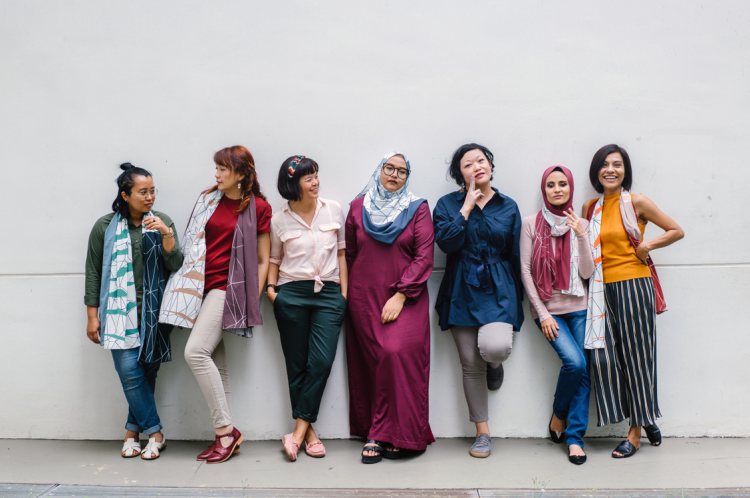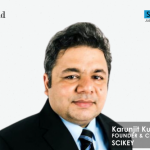One in six marketers admits to violating lockdown restrictions to create diverse content.
Shutterstock, Inc. a leading global creative platform offering full-service solutions, high-quality content, and applications for brands, businesses and media companies, today announced the results of a landmark study, DE&I in Marketing: A Global Report by Shutterstock. The results explore the opinions and actions of 2,700 marketers in Australia, Brazil, France, Germany, Italy, South Korea, Spain, the UK, and the USA, across their use of diverse content in marketing campaigns, and how global events have impacted decisions.
“Our DE&I in Marketing study encompasses the events of the last year and a half and how these monumental moments have impacted how diversity is valued and prioritized in brand content decisions,” said Meeckel Beecher, Global Head of Diversity, Equity and Inclusion at Shutterstock. “Despite the widespread lockdowns, content creation excelled, and the resilience of creativity has prevailed. There is no denying the world’s media has paid more attention than ever before to cultural movements and raising much-needed awareness, however, we wanted to understand to what extent this has been truly mirrored in content choices. Upholding values of diversity, inclusivity, representation and respect have never been more important, or more urgent. Launching this Global Diversity Awareness Month, our report highlights that there is more work to be done, and we’re looking forward to collaborating with our partners to do the work. It’s positive to note that people are listening, and our mission at Shutterstock continues to be ensuring all creative content represents the diverse global community.”
Societal Movements Impact on Diverse Content
Globally, the rise of awareness surrounding the Black Lives Matter and Stop Asian Hate movements last year drove brands to launch and develop existing anti-racism pledges. Nearly two-thirds of global marketers (63%) state these movements significantly impacted content decisions over the last 12 months. Exploring this further, 65% of marketers agree racial and ethnic diversity is an important factor when targeting campaign audiences. However, the results also show that 44% of those surveyed believe it can be difficult to reflect their brand with racial and ethnic diversity visually.

Lockdown Restricts Localized Content
Given the current international travel restrictions in place, lockdown restrictions still have a monumental impact on marketing content creation. With borders closed and stay-at-home orders enacted in many places, 37% of global marketers say their ability to source diverse content has been significantly impacted due to travel restrictions. The knock-on effect on content creation is clear: a quarter of marketers (25%) state they have been unable to localize content for individual markets. This has pushed more than one in six (17%) global marketers to violate lockdown restrictions – risking the health and legal implications – to continue to create diverse content.
Brands Battle to Marry Representation with Authenticity
Events over the last year plus have encouraged more than a third (34%) of global marketers to believe that accurately representing the world we live in is the most important objective for content used in marketing campaigns. There is more of a desire for brands to effectively represent the world we live in over what their brand’s purpose is (34% vs. 33%). However, as consumers look to engage with authentic brands, marketers must understand how to ensure marketing is aligned with their core beliefs and values, or risk being seen as disingenuous.
Marketers state accurate representation is the top reason behind increasing their usage of content that features same-sex couples (64%), racially diverse models (68%), people with disabilities (60%), and transgender models (62%). It is reassuring that 75% of marketers understand the importance of this content being created authentically by the same audience it intends to reach.

Marketers Are Indifferent to Political Ideology
Global brands are more focused on presenting their own ideology through their marketing decisions rather than representing the political landscape. Just under half (41%) of global respondents said they focus their efforts more specifically on their own company ideology, compared to just 32% who look to reflect the political landscape. More than a quarter (26%) aim for their campaign creative to oppose the political landscape, demonstrating the increasing rise of brands making their own stand to social issues, establishing their own voice.
Other Key Global Findings Reveal That:
- Less than a third (31%) of Head of DE&I hires globally are involved in all marketing decisions, with 14% having no involvement at all—instead only supporting the HR function.
- Content which features females in campaigns has seen the biggest growth globally over the last 12 months (28%), with the second most popular content increase featuring racially diverse models (26%).
- 77% of global marketers say they are expected to use more diverse representation in their campaigns. 76% globally say there is still room for growth.
- 74% of marketers globally state using more diverse content helps a brand’s reputation.
To support marketers as they seek to represent diversity through content decisions, Shutterstock is sharing the results of this research here, together with a series of curated image and video collections here.
















